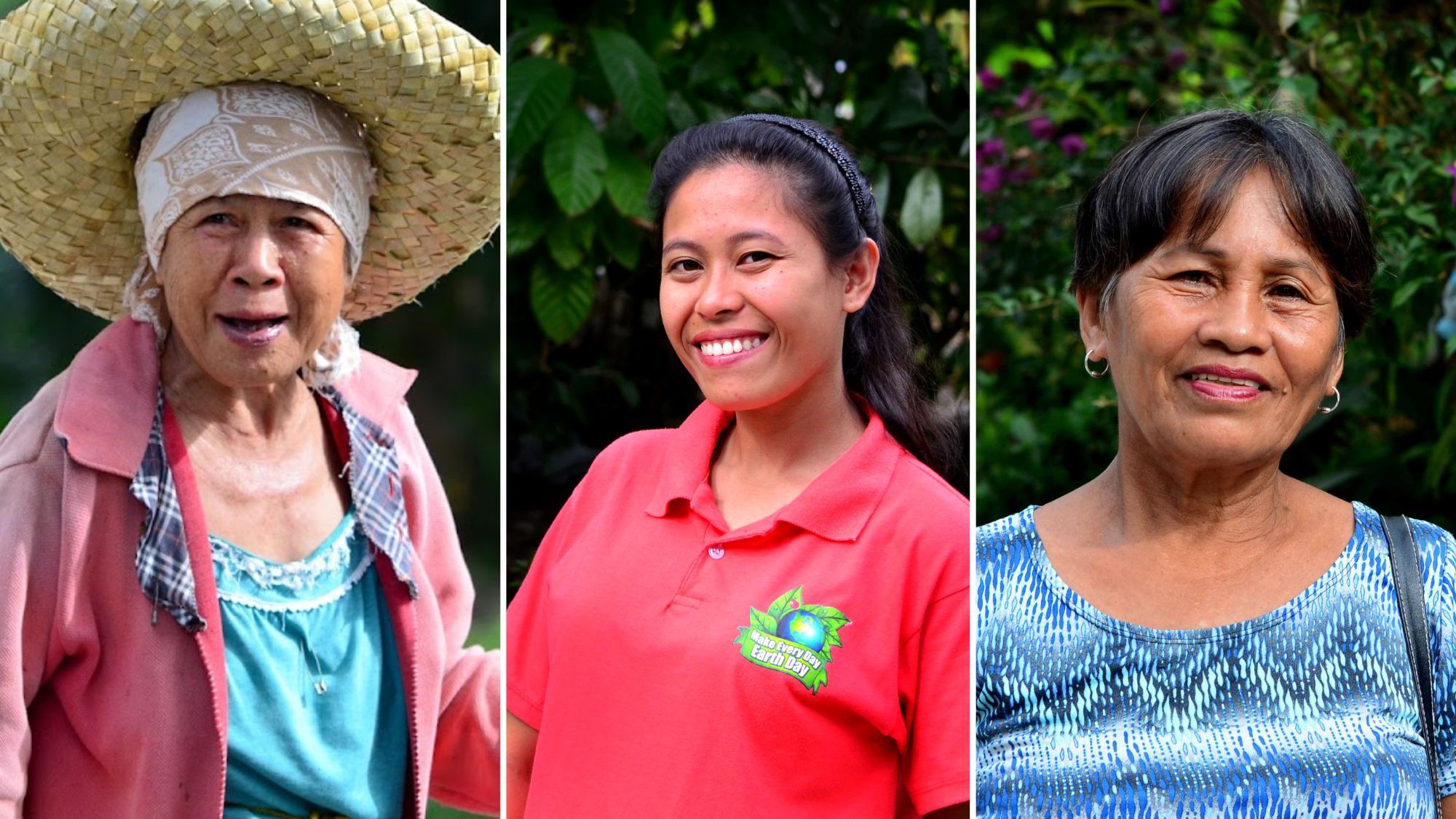Sibalom, Panay – “We have planted over 10,000 seedlings in those mountains,” gestures Villa Abagon, 70, a Forest Warden from Barangay Cabladan in the highlands of Antique.
Heavily-denuded after World War II, the Sibalom Natural Park slowly regained its forest cover with the help of a few determined mothers, sisters and lolas.
Though most of the country’s Bantay Gubat and Bantay Dagat (Forest and Coastal Wardens) are men, Lola Villa has been patrolling the woods and planting native trees as a female Forest Warden for over 40 years.
The mothers of conservation, many women have become icons for the environment – Dr. Jane Goodall, Dr. Sylvia Earle, even young climate campaigner Greta Thunberg. The Greek personification of Planet Earth, Gaia, is a woman. Philippine tribes once revered the Babaylan, typically an elder woman who was part healer and part intermediary into the realm of spirits.
In many countries however, women’s voices are still marginalized and unheeded. They may be ignored or undermined, which is why the Department of Environment and Natural Resources and United Nations Development Program's Biodiversity Finance Initiative (DENR-UNDP-BIOFIN) is working to mainstream gender equality in all aspects of governance and decision-making across 41 countries, including the Philippines.
To celebrate Women’s Month this March, let’s meet the women protecting and sustainably managing their home forests in Antique. “They showcase how women can make conservation more effective despite being busy with household chores, farming and other income generating work, plus their never-ending tasks as duty bearers,” says Anabelle Plantilla, National Project Manager for DENR-UNDP-BIOFIN. “These women put great value, time and effort into protecting our forests. This is their avowed commitment.”
From Offices to Field Sites
“It’s been 35 years since I started working at the DENR,” muses Cynthia Blancia, Provincial Environment and Natural Resources Officer (PENRO) for Antique. “In my experience, women make great mediators as they are non-threatening and open to quiet discussions, able to listen to and draw out people’s ideas. Almost all of our line managers and section heads are women here.”
Cynthia says she never experienced discrimination as the DENR is fair, progressive and gender-neutral. “Food preparation is usually led by women. For fieldwork, we regularly hire both men and women as rangers and park wardens. Men and women have complementary skill sets. Though not as physically strong or tough as men, women are often more thorough and have a flair for style and beauty.”
Across Philippine offices and field sites, women are doing their part for conservation. The women rangers of the Sibalom Natural Park are no exception, keeping loggers at bay, planting both upland crops and native trees, even extinguishing the occasional deadly brush fire.
“My scariest moment as a Bantay Gubat was when we had to put out a raging fire. Even today, I can feel the searing heat, hear the crackling of dry leaves, the sizzle of timber. That was a long time ago – but I can still see flames eating up part of a mountain,” recalls Forest Ranger Lumen Tiongco.
Working alongside men, Lumen and other women rangers regularly clear brush to create fire lines, making the Sibalom Natural Park safer for visitors. “We also stop honey collectors from smoking out bees from their hives. As we learned the hard way, forests and fire can be a fiery combination.”
Next Generation of Women Leaders
“The woods provide us with an endless array of non-timber products. We can harvest vines and leaves like Bakan, Balud, Bulo, Pandan, Rattan and Tapuyay to fashion hats, bags, baskets, hammocks, twine and anything else we can sell to augment our families’ incomes,” says People’s Organization president Fe Geraldes Lonasco while showing off various locally-made handicrafts.
In return, People’s Organizations actively work to protect forests, sending out teams of volunteer wardens.
“We don’t just protect these mountains. We help keep useful forest products flowing.”
Though most farmers and rangers are in their 40s or older, there’s a new generation of young women determined to take on their work.
“We had a brilliant biology teacher in school and I wanted to be just like her. I was eventually accepted at the DENR and I couldn’t be happier,” shares Sibalom Protected Area Management Office staff Elizabeth Ann Daquipil. “Today, we study and protect breathtaking areas like the Sibalom Natural Park, home to giant Rafflesia flowers and endangered birds like Walden’s and Tarictic Hornbills. It’s just as I always dreamed. Biology!”
The United Nations’ Sustainable Development Goal Five (SDG-5) focuses on pursuing real and sustained gender equality. UNDP recognizes that truly sustainable human development can never be achieved unless women are able to contribute on an equal basis with men in their respective societies.
“Promoting gender equality in all projects is just one aspect of DENR-UNDP-BIOFIN’s work to develop and implement inclusive funding mechanisms to sustain biodiversity conservation,” adds UNDP Resident Representative Dr. Selva Ramachandran. “Enhancing the capacity of women can help community members – both men and women – escape poverty.”
As they have for decades, the lolas, mothers and sisters of the Sibalom Park in Antique continue to serve as stewards of nature, helping make forests safer and more productive for all.
“I’m near the end of my days and know that I won’t see many of the trees we plant grow tall,” muses Lola Villa. “I won’t see them, but my 15 grandchildren will. What we plant today connects our generation to theirs. Like our kids, these new forests are our legacy.”

